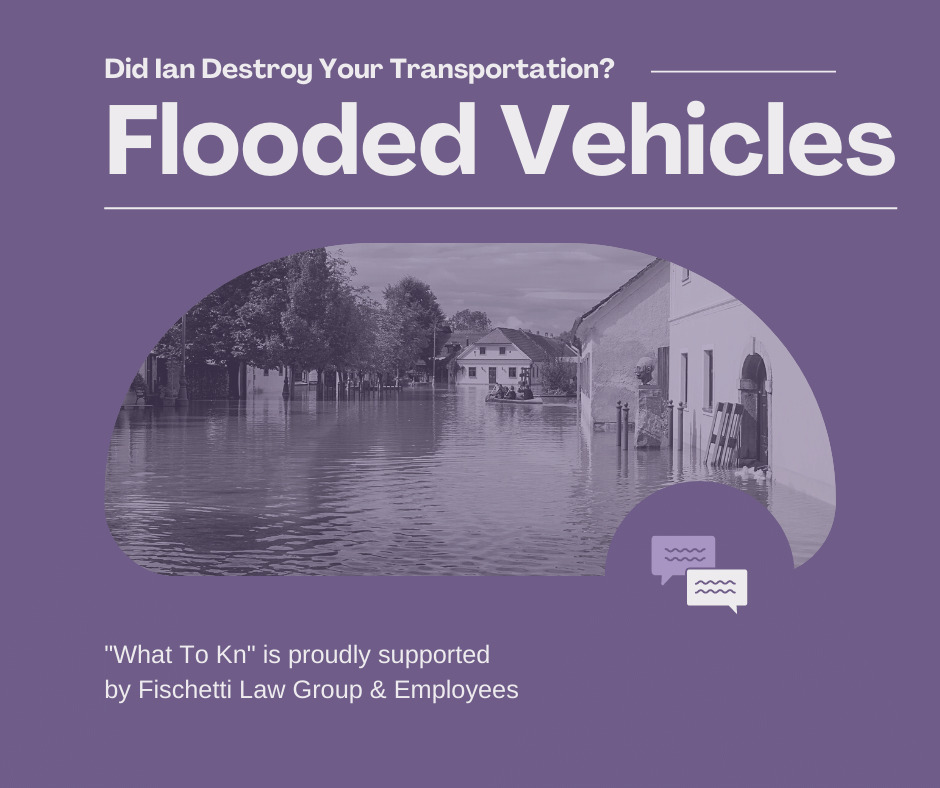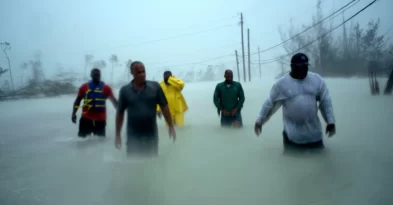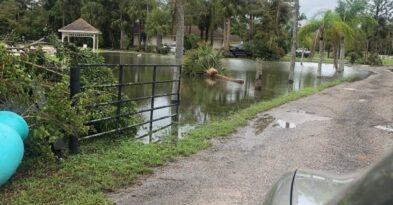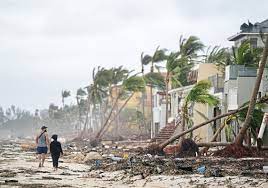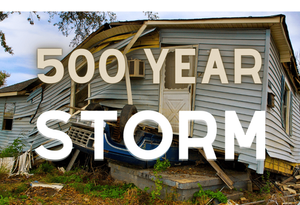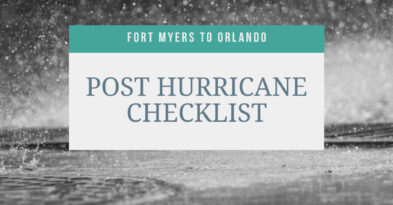FLOOD DAMAGED VEHICLES: DID THE OCEAN TAKE A DIP IN YOUR CAR?
Hurricane Ian is a prime example of the detriment flooding can cause to vehicles in Southwest Florida. Hurricanes and flooding typically come as a package deal. The flooding in areas like Fort Myers and Orlando was extremely severe with 15 feet of storm surge and about 50,000 cars flooded, and 358,000 damaged, according to a new estimate. With this news, car shoppers may need to be more wary than before.
FLOODED CARS SHOWING UP IN THE MARKETPLACE
Cars damaged by the flooding during Hurricane Ian will most likely be for sale soon in metro Atlanta, if they aren’t already. You may be wondering why they would be for sale miles away rather than somewhere nearby in Florida. The answer is deception. The sellers of these cars do not want potential buyers to expect that they could be purchasing a flood damaged vehicle. There, they will do just about anything that they can to cover up a rough history, even if it is not legal.
In some cases, these sellers first buy them from a salvage auction and clean them up to resell them for a higher price. Consumer adviser Clark Howards says even if the cars are looking pristine from the outside, they likely have mechanical and safety problems that many buyers are not aware of. Here are some states with the most flooded cars, according to CARFAX:
-
Texas: 67,000 cars
-
Florida: 33,500 cars
-
Kentucky: 26,000 cars
-
Pennsylvania: 21,500 cars
-
New Jersey: 18,900 cars
REBUILT TITLES: WHAT TO KNOW
Cars that are declared totaled are usually given a salvage title and are no longer able to legally be driven in the U.S. However, there are some states that allow buyers to fix them and then obtain a rebuilt title, which makes them legal to drive. For example, in Texas, unless the vehicle damage is more than its total value, it can be resold with no requirements to list it as a rebuilt title. Most insurance companies likely won’t offer comprehensive insurance on cars with rebuilt titles, but some will offer liability coverage. With this knowledge, here are a few more things to know about rebuilt titles:
-
A rebuilt car could save you money
-
You may have a harder time selling a car with a rebuilt title
-
Your insurance company might not cover rebuilt title cars
-
Make sure the rebuilt car isn’t a lemon
-
Always get the documentation prior to purchasing a rebuilt title car
If you are considering getting a rebuilt title car, here are some questions to ask and get answered:
-
How was the car damaged?
-
How extensive was the damage?
-
How was the vehicle repaired?
-
Has a certified mechanic examined the car?
-
Is the frame properly aligned?
Still, you might be wondering if flood damaged cars are even worth buying. Truthfully, they probably aren’t unless you are getting a really great deal on it. This just means if it has been submerged in water then it should be sold for way below its market value, unless a dealership is able to provide you with proof of extension restoration.
LOOK OUT FOR TITLE WASHING
While title washing is an illegal act, scammers still find their way to remove any negative information from a car title to inflate its value. This is also a way for fraudsters to put flood damaged cars back on sale as if they are undamaged used cars.
Often, they take the VIN number from a similar vehicle that was junked and attach it to the flooded vehicle they are attempting to sell. The flooded car then takes on that new VIN (vehicle identification number) and in turn has a totally different history that does not include a salvage title. While it is always important to get a report on a vehicle’s history, it is not infallible. Inspect the car yourself, and if you are still wary, don’t hesitate to get a second opinion.
Far too many times they succeed in hiding the paper trail of prior flood damage. They make only the cosmetic repairs to hide the damage done and sell the car rather than fully repairing it and spending more money. Used car shoppers should make it a priority to learn the signs of a flood damaged car.
HOW TO SPOT A FLOOD-DAMAGED CAR
As we have gone over, flood damage might not always show up in a vehicle history report. This also occurs if the owner of the flooded car didn’t have comprehensive insurance coverage and were unable to file a claim. In the absence of a reliable history report, here are some ways you can spot a flood damaged car:
1. Smell. Musty or moldy smells that are coming from the inside of the car may be a sign of mildew buildup from prolonged exposure to water. Same goes for an overpowering smell of air freshener or cleaning solution, they may be trying to cover something up. Also be sure to run the air conditioning to see if a moldy smell comes from the vents.
2. Discolored carpets. Any stains or differences in color between the lower and upper upholstery sections may be a sign that water stood in the car. The seller may even try to remove the flood-damaged upholstery all together, so if it is brand new in a used car, be wary.
3. Exterior signs of water buildup. These signs could include fogging inside headlamps or taillights. A waterline may also be noticeable in the engine compartment or the trunk, which also indicates the car could have sat in standing water.
4. Feel the car up. Your sense of touch is just as important as your sense of smell here. Water flooding can collect in areas the dealer or seller may have missed. Run your hands along the carpet looking for moisture. If you’re able, peel back the carpet and see if you find and moisture. If you find rust under the carpet, this is also another sign you could be looking at a flooded car.
5. Grab an expert. Used cars are still investments. If you are unsure or think the car could have flood damage, hire an expert. Any good mechanic will know exactly which places to look for potential flood damage. Especially in areas that you may not know how to examine, like the alternator and pumps.
Even prior to the most recent Hurricane, Ian, there was an estimated 400,000 vehicles on the road that had waterlogged history. In some states like Georgia, there is no lemon law for used vehicles. Simply put, even if a seller lies to you and sells you a piece of junk, once you bought it, that piece of junk is now your issue, and the seller is off the hook. To further protect yourself, you can also run any vehicle through the Carfax free flood check. However, as mentioned before there are several things to consider when you are looking at a used car. You can’t just hope and pray there is no prior flood damage, you will have to put in the time to do all the necessary steps to ensure you are buying a good car. Otherwise, you will have to suffer the consequences alone.
